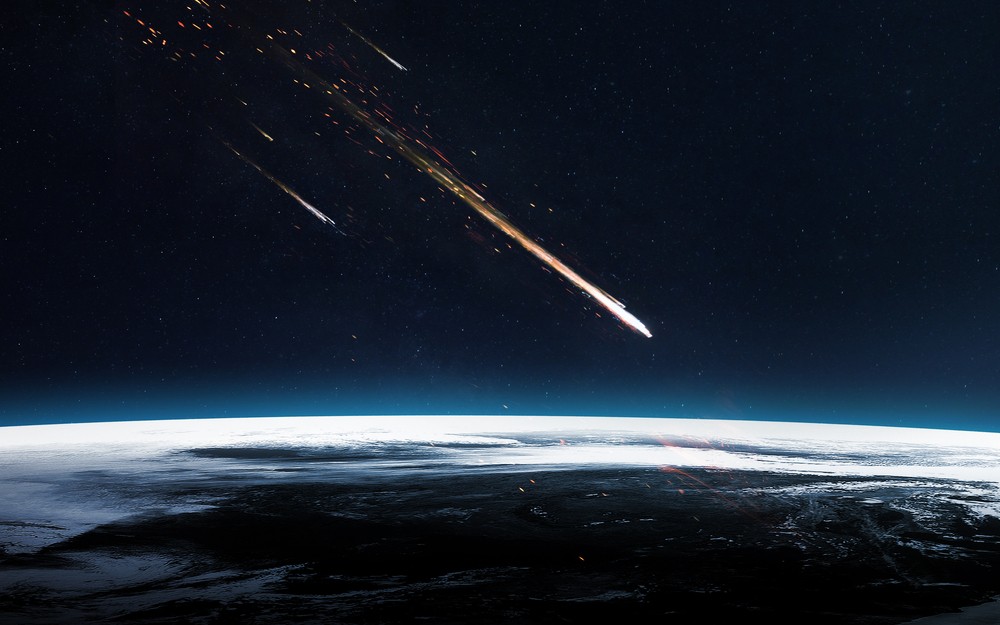Popular Reads
Top Results
Can't find what you're looking for?
View all search resultsPopular Reads
Top Results
Can't find what you're looking for?
View all search resultsMeteors splashing into warm ponds sparked life on Earth: Study
Change text size
Gift Premium Articles
to Anyone
H
ow did life on Earth begin? A study out Monday backs the theory that meteorites splashing into warm ponds leached essential elements that gave rise to the building blocks of life billions of years ago.
The report is based on "exhaustive research and calculations" in astrophysics, geology, chemistry and biology, according a summary provided by McMaster University.
"Because there are so many inputs from so many different fields, it's kind of amazing that it all hangs together," said co-author Ralph Pudritz of the McMaster's Origins Institute and its Department of Physics and Astronomy.
"Each step led very naturally to the next. To have them all lead to a clear picture in the end is saying there's something right about this."
The life-giving potential of these so-called "warm little ponds" was raised by the famed biologist Charles Darwin, who developed the theory of evolution, in a letter to a friend in 1871.
"But if (and oh what a big if) we could conceive in some warm little pond with all sorts of ammonia and phosphoric salts, light, heat, electricity et cetera present, that a protein compound was chemically formed, ready to undergo still more complex changes," he wrote at the time.
Read also: Rapper B.O.B raising money for own satellite to prove Earth is flat
Since then, researchers have debated whether life emerged in ponds, or in hydrothermal vents along the ocean floor.
The latest study finds ponds were far more likely, because a cycle from wet to dry was needed to bond basic molecular building blocks in the ponds into self-replicating ribonucleic acid (RNA) molecules.
These RNA molecules constituted the first genetic code for life on the planet, and came before DNA, said the findings.
"In order to understand the origin of life, we need to understand Earth as it was billions of years ago," said co-author Thomas Henning from the Max Planck Institute for Astronomy.
"As our study shows, astronomy provide a vital part of the answer. The details of how our solar system formed have direct consequences for the origin of life on Earth."
Between 3.7 and 4.5 billion years ago, the Earth was being bombarded by meteors, at a rate about eight to 11 times higher than it does today.
Read also: Asteroid-bound spacecraft zips by Earth for gravity boost
The atmosphere back then was "dominated by volcanic gases, and dry land was scarce as continents were rising out of the global ocean," said the PNAS report.
Eventually, the ingredients needed to form RNA polymers reached sufficient concentrations in pond water, and bonded together as water levels fell and rose through cycles of precipitation, evaporation and drainage.
These early RNA life forms evolved, and gave rise to the development of DNA, the genetic blueprint of higher forms of life.
"DNA is too complex to have been the first aspect of life to emerge," said Pudritz.
"It had to start with something else, and that is RNA."
The full study appears in the Proceedings of the National Academy of Sciences (PNAS), a peer-reviewed US journal.











